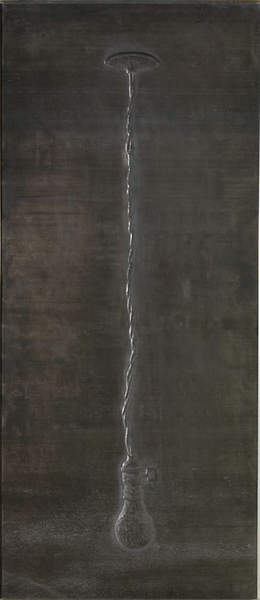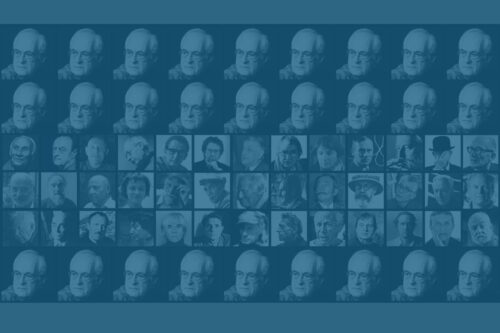
Leonardo da Vinci (drawing of robot)
“Although the term, mark, is commonly applied to a person who is given short-lived expectations by operators who have intentionally misrepresented the facts, a less restricted definition is desirable in analyzing the larger social scene. An expectation may finally prove false, even though it has been possible to sustain it for a long time and even though the operators acted in good faith. So, too, the disappointment of reasonable expectations, as well as misguided ones, creates a need for consolation. Persons who participate in what is recognized as a confidence game are found in only a few social settings, but persons who have to be cooled out are found in many. Cooling the mark out is one theme in a very basic social story.”
Erving Goffman (On Cooling the Mark Out: Some Aspects of Adaptation to Failure. Psychiatry, 15, 1952)
“The big con can also be considered as a form of theater, very nearly a Gesamtkunstwerk, staged with minute naturalistic illusionism for an audience of one, who is moreover enlisted as part of the cast. The con game always has at least two principals, the roper and the inside man, whose roles are as archetypal as Punch and Judy, or Mr. Tambo and Mr. Bones in minstrelsy. They bounce the victim between them the way cops in a Mutt-and-Jeff torture team manipulate a suspect; it is a kind of three-man tango.”
Luc Sante (Introduction to David Mauer’s The Big Con)
It is probably a not remotely original idea but the so called Great Reset, and its various ideological tributaries, such as the 15 minute city or pandemic lockdowns, are all related to the classic early 20th century ‘Big Con’. The confidence man is a figure that runs through American literature, from Melville’s novel of the same name, to Mark Twain to a dozen Black Mask writers such as David Goodis and Jim Thompson. The confidence game carries something peculiarly American about it. There is a mythology to U.S. economic history. A mythology that only intermittently coincides with reality. The height of the confidence game was the late 19th century, on through the 1920s. But it was already in decline by the Great Depression (it is one of those curiosities of the English language that height became standard and not heighth. I find these things fascinating https://www.merriam-webster.com/grammar/the-height-of-mispronunciation2014or-not).

Anton Van Dalen
“The confidence game—-the con, as its practitioners call it—is a way of obtaining money under false pretenses by the exercise of fraud and deceit. The con differs from politer forms of financial deceit in important ways. The con is practiced on private persons by talented actors who methodically and regularly build up informal social relationships just for the purpose of abusing diem; white-collar crime is practiced on organizations by persons who learn to abuse positions of trust which they once filled faithfully. The one exploits poise; the other, position.”
Erving Goffman (Ibid)
After a sting the crew will leave town immediately. They ‘blow off’ the mark (these terms have changed slightly over time, but since Hollywood had a massive hit with The Sting, most people know the argot) and leave him to fend for himself. But some marks will not go quietly into that poorer goodnight. Wiser but with less money. Some marks ‘squawk’. And there is a play called ‘cooling the mark out’.
“In order to avoid this adverse publicity, an additional phase is sometimes added at the end of the play. It is called cooling the mark out. After the blowoff has occurred, one of the operators stays with the mark and makes an effort to keep the anger of the mark within manageable and sensible proportions. The operator stays behind his team-mates in the capacity of what might be called a cooler and exercises upon the mark the art of consolation. An attempt is made to define the situation for the mark in a way that makes it easy for him to accept the inevitable and quietly go home. The mark is given instruction in the philosophy of taking a loss. “
Erving Goffman (Ibid)
It is interesting and useful to compare the various sediments of money and class in the U.S. during the turn of the century (20th century) and today. Also, to look at how the marketing and advertising industries have changed both propaganda and more importantly, how contemporary financial criminals view themselves. Most important, or most germane here, is why in general does the public refuse to get angry? Why the seeming acquiescence?
“The mark’s readiness to participate in a sure thing is based on more than avarice; it is based on a feeling that he will now be able to prove to himself that he is the sort of person who can “turn a fast buck.” For many, this capacity for high finance comes near to being a sign of masculinity and a test of fulfilling the male role.”
Erving Goffman (Ibid)

Walton Ford
“Most marks come from the upper strata of society, which, in America, means that they have made, married, or inherited money. Because of this, they acquire status which in time they come to attribute to some inherent superiority, especially as regards matters of sound judgment in finance and investment. Friends and associates, themselves social climbers and sycophants, help to maintain this illusion of superiority. Eventually, the mark comes to regard himself as a person of vision and even of genius. Thus a Babbitt who has cleared half a million in a real-estate development easily forgets the part which luck and chicanery have played in his financial rise; he accepts his mantle of respectability without question; he naïvely attributes his success to sound business judgment. And any confidence man will testify that a real-estate man is the fattest and juiciest of suckers.”
David Maurer (The Big Con)
It is funny in a sense how this idea was employed by liberals at the start of the pandemic (see https://www.lawyersgunsmoneyblog.com/2021/07/on-cooling-the-right-wing-marks-out )
I do wonder if Paul Campos feels the same way today vis a vis the Vaxx skeptics? But of course its not just the financial crisis of 2008, which was elucidated by Goffman and Maurer’s analysis of confidence games.
“Fantasmatic logics are here conceived as responsive to desires animated by an impulse to recapture a primordial enjoyment, or jouissance that is sacrificed by the subject upon entry into the symbolic order. This ontological sacrifice directly correlates with the poststructuralist premise that symbolic structures are inherently incomplete,which implies that the political moment is always-already present as a potential moment of contestation and mobilization. However, the ontological sacrifice of enjoyment is routinely unacknowledged as it is projected onto others and ascribed the status of ‘stolen’. In fact, the notion of ‘theft of enjoyment’ is a very powerful motif in the way subjects structure their desire and often informs various scapegoating tendenciesmanifest in the theft of ‘our’ jouissance by the ‘greedy’, ‘reckless’ bankers…”
Jason Glynos, Robin Klimecki & Hugh Willmott (Cooling Out the Marks, Journal of Cultural Economy, 2012)

Li Jin Woo
“When the blowoff comes, the mark finds that he has no defense for not being a shrewd man. He has defined himself as a shrewd man and must face the fact that he is only another easy mark. He has defined himself as possessing a certain set of qualities and then proven to himself that he is miserably lacking in them. This is a process of self-destruction of the self.”
Erving Goffman (Ibid)
In electoral politics, today, at least in the U.S. and U.K., there is a similar sado masochistic surfacing in the public, a public that in some sense is a stand in for the mark. The rationalizations are well memorized at this point, and as such as barely satisfying at all. The public sees the Wizard behind the curtain, or thinks it does. For this is like a secondary ‘play’. And it is also, in a sense, a long form cooling out.
Glynos et al, in a very smart paper, raise a central concern for many people (alluded to above) which is why this radical contingency of revolt is so seemingly easily defused. So that even if there is no public outcry, there is (what Glynos et al ) call a logics of signification. Meaning “simply the way discursive elements enter into relations of equivalence or relations of difference.” There is an already existing framing of discourse, a frame that excludes certain actually disruptive features.
“fantasmatic logics, which are understood to provide both socialand political logics with their force or ideological ‘grip’ (Glynos 2001). They make political logics compelling and they make social logics natural. Fantasmatic logics attend tothe role of subjectivity, desire and enjoyment (jouissance) in establishing, sustaining, challenging or restoring social realities. Fantasmatic logics are here conceived as responsive to desires animated by animpulse to recapture a primordial enjoyment, or jouissance that is sacrificed by the subject upon entry into the symbolic order. This ontological sacrifice directly correlates with the poststructuralist premise that symbolic structures are inherently incomplete, which implies that the political moment is always-already present as a potential moment of contestation and mobilization.”
Jason Glynos, Robin Klimecki & Hugh Willmott (Ibid)

Raffaele Mainella (illustration for Nos Invisibles, 1907)
The ontological sacrifice is presented as ‘stolen’. The loss of pleasure is because that pleasure was stolen.
“…the notion of ‘theft of enjoyment’ is a very powerful motif in the way subjects structure their desire and often informs various scapegoating tendencies manifest in the theft of ‘our’ jouissance by the ‘greedy’, ‘reckless’ bankers, for example.”
Jason Glynos, Robin Klimecki & Hugh Willmott (Ibid)
This is, of course, the way that Marxist analysis is elided. Its ‘greed’ and not a necessary feature of ‘capitalism’. Its individualizing a social and historical issue. And certainly the scapegoating mechanism is absolutely a feature of this. The public gravitates (in a self protecting action) toward ideas such as ‘casino capitalism’. Such ideas absolve capitalism itself, of course.
“The crucial parts of our analysis concern squawking and cooling, because it is during these phases that political logics are mobilized to pre-empt public contestation of key norms of the financial system, as well as to restore and reaffirm those norms.”
Jason Glynos, Robin Klimecki & Hugh Willmott (Ibid)
Now this is in reference to the financial crisis, but it applies in almost identical ways to the pandemic and to the Great Reset, as well, in a slightly altered form, to the Climate crisis.
“While fantasmatic logics have served primarily as glue for the social logics of financialization during this phase, fantasmatic logics during the squawk and cooling phases have provided a way of facilitating and energizing the operation of political logics that marginalized attempts to contest the neoliberal finance regime. In doing so, they narrowed the field of public debate to a remarkable degree, contributing to the exclusion from public awareness alternative accounts of the crisis, as well as alternative visions of the future.”
Jason Glynos, Robin Klimecki & Hugh Willmott (Ibid)
This structural aspect is absolutely seen in the pandemics and Climate discourse, and to a degree in the Great Reset. The political frame for Climate, by virtue of claiming cosmic significance, planetary risk or danger, excludes discussions of the political; in other words the political logics is implied immanence. The political frames by removing politics from the discussion (it actually works as a weirdly inverted zen koan or something. Blue Cliff record #40, “As the officer Lu Hsuan was talking with Nan Ch’uan, he said, ‘Master of the Teachings Chao said, ‘Heaven, earth, and I have the same root; myriad things and I are one body.’ This is quite marvelous .’ Nan Ch’uan pointed to a flower in the garden. He called to the officer and said, ‘People these days see this flower as a dream’.”)

Thomas Struth, photography (Frankfurt, Germany)
Now the Climate discourse is predicated on moral coercion. One must save the planet. To do so entails sacrifice. Here there is a feature that Glynos et al discuss vis a vis the financial crisis, and that is a normalizing of computer technologies. But not just a simple normalizing, but rather a distancing from view of the public. These technologies (and AI itself) promised an infallible process of evaluation. And with this came the confidence game of digital tech itself.
“Techno-logics are thus understood to be a form of political logic because they serve as rallying points around which key elite groups mobilize themselves in a way that keeps at bay the contestability of the norms governing the (neoliberal finance) regime that generates, secures and expands their privileges.”
Jason Glynos, Robin Klimecki & Hugh Willmott (Ibid)
None of the climate crisis’ leading voices have stopped flying their private jets, for example. In fact the reliance on stochastic analysis, on barely reliable computer models, which one is shamed for questioning, allows for a totally opaque process whose authority is presented as absolute. Now there was, during the financial crisis, a scapegoating of bankers (Bernie Madoff or Lehman Brothers etc) and a few politicians and economic pundits and irresponsible borrowers, and this provided a managed enjoyment, in a sense, for the public. But by focusing on these ‘selfish few’ the system itself recedes out of view. The focus was on the moral failures of the greedy. And this foreshadows the Climate discourse where the selfish are scapegoated and whose culpability exaggerated. The moral imperative is repeated and repeated.
“In the ‘squawking’ phase, a political logic of recuperation, rather than transfor-mation, has prevailed (so far), underwritten by short-term, expedient measures thathave cushioned the negative impacts of the crisis, and orchestrated by a focus upon ‘irresponsible’ actors (i.e. bankers, but also regulators, politicians and consumers) rather than systemic issues. In paying attention to the media emphasis upon individual ‘bad apples’, we have shown how this focus contributed to a process of ‘cooling’, wherein the basic norms of neoliberal finance have been reasserted with force and confidence.In the following section we examine several key cooling devices.”
Jason Glynos, Robin Klimecki & Hugh Willmott (Ibid)

Max Gaisser (The Coin Collector, early 20th century)
The mark has failed himself in his own eyes, and from his perspective, in the eyes of others. The *cooling* process is to aid in shielding this destroyed self from wider public exposure. To make the mark believe nobody needs to know his failure. This process today is on auto pilot. The system itself aids in this, and partly this is, again, the result of computer and internet technology.
“The moment of failure often catches a person acting as one who feels that he is an appropriate sort of person for the role in question. Assumption becomes presumption, and failure becomes fraud. To loss of substance is thereby added loss of face. Of the man/ themes that can occur in the natural history of an involvement, this seems to be the most melancholy.”
Erving Goffman (Ibid)
The shift in psychoanalysis to a kind of adjustment therapy has meant, in a sense, that the therapist is society’s cooler. And it is not insignificant that adjustment has been so institutionalized. Capitalism is a system that manufactures disappointment (in addition to poverty). And now in the later stages of a totally marketed and reified society, there is a pervasive sense of failure to one’s own ambitions, but also in the promises of the state. Late stage capitalism is an engine for failure, to such a degree that failure takes on a fetishistic quality. Capitalism demands winners and losers. But 21st century capitalism has both intensified that divide (as inequality increases and the transfer of wealth to the top 1% is almost complete) and created a new perspective on failure. Some of this is found in the victim’s rights movement. Something of this is found in the confessional aspect of social media. As is the lynch mob mentality also found in social media.

Jasper Johns
Erving Goffman (Ibid)
Those who need to be cooled are those have lost one of their social roles (per Goffman). Today though, with a much further loss of community and organizations of communal sharing (even unions) and with the pervasive role of the smartphone and social media, the idea of social role is more acutely a shopped for identity. The very idea of a self made man is almost obsolete. The individualized culture of identity now in service of constantly erasing class. We are all marks in the climate discourse.
The entirety of state propaganda now is a confidence game, and that is the real relevance of the Goffman essay. The variable is in the moral shaming, or attempted moral shaming regards not just climate, but NATO aggressions and even the Reset. Electoral politics are the delivery system for shifting moral standards. Dennis Riches used the Goffman piece here…https://propagandainfocus.com/minimization-of-harm/

Yellow Kid Weil, Chicago 1923. Famous confidence man.
This focuses on the pandemic and the vaccine mandates. The anti-Russia propaganda today is perhaps even more pervasive than the Reset or Climate crisis (though its close). The empire has to have that enemy, and while global warming is an enemy of sorts it holds a bit too much abstraction, especially when its not getting hotter, but colder in much of the world. But Riches makes an astute observation about the intrusion of marketing logics in these ‘plays’. Publications like The New Yorker are one step up the literacy ladder from TED talks, but it appeals to much the same demographic. The anti Putin stuff is close to cartoon villains meant to be hissed and booed. I keep returning in these posts of mine to the reflexive scapegoating that seems like oxygen to many in the West. You can become, with a simple question, one or another variety of *denier*. Climate denier, Covid denier, or first cousin appellations like Putin Stooge or HAMAS lover. I think on some level I am all of them. Part of this is the ascension of the ‘expert’. And this first appeared as textbooks stopped quoting actual sources and instead quote people, experts, commenting on the source material. The ideas, the actual ideas of Marx or Freud, Adorno or even an R.D. Laing or Wilhelm Reich were rarely if ever discussed. The anti intellectualism of contemporary society, at least in the U.S. and EU countries is staggering. Hence the manner in which the confidence game is employed today. Also, because of how de-socialized the world has become, the old timey con is much rarer.
“If the mark were completely aware of this character weakness, he would not be so easy to trim. But, like almost everyone else, the mark thinks of himself as an “honest man.” He may be hardly aware, or even totally unaware, of this trait which leads to his financial ruin. “My boy,” said old John Henry Strosnider sagely, “look carefully at an honest man when he tells the tale himself about his honesty. He makes the best kind of mark .…”
David Maurer (Ibid)
“Freud repeatedly draws upon this distinction between production and distribution to argue that, in the case of all known civilizations, the distribution of social wealth has always been out of kilter with the social arrangements involved in its production. Speaking specifically of the distributive inequalities that exist between the “classes of society,” Freud writes, “the satisfaction of one portion [of society]… depends upon the suppression of another.” A consideration of the history of various civilizations reveals that “civilization is something which was imposed on a resisting majority by a minority which understood how to obtain possession of the means to power and coercion.”
George Cavalletto (Crossing the Psycho- Social Divide)

Pushwagner
It seems that cooling the mark is built into contemporary institutional/Corporate culture. The immediate introjection of excuses and alibis is anticipated by the public. It is rarely investigated, however. It is simply part of the familiar landscape of life today. All crimes, all exploitation, all cruelty is henceforth anticipated, too. One useful addition to the Goffman is found in Adorno’s early work on fascist agitators.
“…a contrast between two phases of capitalism; and psychologically, a contrast between two types of personality structures. Fascism is seen as an outcome of the transition from the rst to the second position in each of these contrasts: economically, as an outcome of the transition from entrepreneurial capitalism to monopoly capitalism; and, psychologically, as an outcome of the transition from autonomous personality structures to submissive authoritarian personality structures.”
George Cavalletto (Ibid)
The confidence game of the 1900s was gone after WW2. In a sense fascism had rendered it obsolete. Adorno wrote (In Psychological Techniques): “the spectre of the beggar looms behind the psychological imagery of each individual.” The contemporary man can no longer make deductions. In a sense the mark today is almost impervious to the con because his whole existence is a con and because his cognitive skills have so declined. Of course this is far more true in the West. In fact I think its largely not at all true in the developing world (sic).
Allow me a side bar here (A footnote in Cavelletto’s book):
“No aspect of Adorno’s use of psychoanalytic theory has been more criticized than his notion that with the end of liberal capitalism fathers cease to be the type of substantive gure that children (especially boys) can internalize to form a type of superego which resists authoritarianism and allows for a degree of social autonomy. These critiques have been inspired, for the most part, by two articles written by Jessica Benjamin: “Authority and the Family Revised: or, A World Without Fathers?” and “The End of Internalization: Adorno’s Social Psychology,” Telos, No. 32 (Summer 1977). While they advance some useful and provocative ideas, these articles also serve as the source of several seriously mistaken ideas as to what exactly Adorno wrote about internalization and the decline of the father, ideas which have been accepted apparently without close examination of the original texts by a number of authors. For example, C. Fred Alford accepts Benjamin’s basic argument without question in his Narcissism, Socrates and theFrankfurt School an; Psychoanalytic Theory (New Haven, 1988).”
And this is correct, and Benjamin has insights, but more mistakes than insights overall. But you can file this on the current vogue to discredit certain thinkers, Adorno being at the front of that line, along with Marx and Freud.
End side bar.

Evgenia Arbugaeva, photography (Barents Sea)
Cavelletto quotes Adorno ( from Psychoanalytic Technique) on the fascist leader… “is a son … dependent on and at the service of something bigger than himself. This greater entity is, however, no longer the father. It is vague and utterly undfined…. [It is] the collectivity of all the ‘sons’ gathered around the fascist organization…. The fascist leader is supposed to gain control by “giving himself up” and surrendering himself to the collectivity. It is from this latter that the fascist leader derives his authority and for which he stands in all his symbolic utterances.” This is an important observation given this breakdown of Goffman’s article. The unresolved Oedipal drama, its failure to be internalized, as Cavelletto puts it, is a key factor in the evolution of a liberal self to a fascist self.
“The psyche faces an expanding integration of impersonal monopolistic determinants, in which formations within the political sphere coalesce with those from within the spheres not only of production and distribution but also of mass communications and culture. This integrated combination, variously labeled by Adorno “the impersonal order,” “anonymous social processes,” “the social and cultural pressure” and at one point simply “monopolism,” overwhelms the post- liberal psyche and leaves it no room for independence.”
George Cavelletto (Ibid)
Phrases today such as ‘chill out’ are the legacy of the confidence man. And there is an essay yet to be written on the temperatures of self, from hot to icy cold. And from dry to wet, which has been explored in a few doctoral papers on Eros, but not enough.
“But the philosophers did more than that. They exercised power by establishing the frame of reference for the era. They not only filled the vacuum created by the fall of the Church; they helped cause the vacuum. Descartes based all knowledge on universal doubt. He put forth a radical idea: The material world, far from the enchanted world of the Middle Ages, was in fact devoid of God. It was made by God, of course, but then abandoned by Him. The spiritual, on the other hand, was graced by the spirit of God, but it was a realm separated from the material realm by an unbridgeable gulf. In the natural scheme of things, human abilities situated in the immaterial or spiritual realm—such as logic and reason— were capable of understanding, manipulating, and then ultimately dominatinf the material realm. { } Knowledge, in turn, was the fulcrum by which the material realm was moved. Interpreted in this way, the Enlightenment era philosophers had used intellectual discourse to exercise political power. By setting the frame of reference in this way, they raised doubts about the authority of the Church, the power of the Monarchy, and the salience of communal folkways. Under the guise of objective, apolitical science, they initiated, reflected, promoted, and carried out a revolution in thinking and authority. They became the sole owners of the scientific process, the only true path to knowledge. “
Philip Cushman (Constructing the Self, Constructing America)

Francisca Sutil
While this is simplistic to a degree, Cushman adds a bit later an important observation about the 19th century in the U.S. And that was the Civil War. From the primitive (and poor) first English colonies, to the cotton plantations that arose in the South, there was a common backdrop of religious fervour that remained tinted with Puritan zeal. And with Puritan industry. And a Puritan sense of direct skills, handmade skills. And distrust of intellectualism.
“The Civil War, a war waged for many reasons, was one of the first of the modern wars of mass destruction. Because it was a war between different segments of the same country, its violence, bloodshed, and destruction were particularly devastating.”
Philip Cushman (Ibid)
But if we want to look at the idea of the mark, of the confidence game, as precursors to the mental health crisis (sic), the sense of apathy, of nearly no resistance to the exploitive technologies of smartphones and AI, then remembering aspects of the American psyche is necessary. And Puritanism is key, I think. And after WW2, the Frankfurt School, and Freud and Marx seem absolutely crucial in understanding how the mark is being cooled out. The age of marketing, the real golden age of massive campaigns of manipulation began in the 80s, I think. And then the internet. But the internet, no matter how one dissects its origins (and its worth, always, remembering the military created it) the backdrop unfolds backward in time to the antebellum plantation system, to Manifest Destinty, and before that to the Puritan colonies.

Jacques Clauzel
“The social forces [of today] to which each individual is subject are so tremendous that he has to yield to them not only economically by becoming an employee (rather than remaining a self-sustaining social unit), but also psychologically under the social and cultural pressure put upon him, a pressure which he can bear only by making it his own cause. He must act in terms of adequate conformist behavior rather than in the terms of a unified, integrated personality.”
Theodor Adorno (Psychoanalytic Technique)
Cavelletto also quotes unpublished notes Adorno made that echo the earlier above quote on fascist agitators.
“Adorno wrote out a series of notes, unpublished to this day, on the subject “toward a new anthropology”. In these notes he suggested that Freud’s psychoanalytic model of psychic structure, while true for the earlier liberal stage of capitalism, was not applicable in the current monopoly stage. Adorno wrote that the historical and psychological changes of recent history were so massive that they constituted a veritable anthropological change in the historically conditioned “nature” of humankind. With the downfall of entrepreneurial capitalism, he asserted, came “a new anthropological type,” a fundamentally new type of human being, with new social functions and a new type of psychic formation.”
George Cavelletto (Ibid)
Adorno saw this new overwhelming social pressure ushering in a literally new kind of human. One who deals with the unberable pressures of The Spectacle by ‘investing’ (Cavelletto’s term) in the very forces that overwhelm him. In the sense of this post, he is investing in the con.

James Rosenquist (1977)
“A successful fascist movement is one that takes up into its own authoritarian forms representations of the objective pressures that had previously overwhelmed its members. In such cases, the masses “identify themselves so strongly with the power system [of the organization] that they are ready to undergo any hardship, as proof of the power and virility with which their own humiliation seems to incorporate them.”
Theodor Adorno (Ibid)
Again the question of virility. The mark at the *blow out* loses a social role but also loses sexual potency. The cooler must assauge that loss. And that, as Dan Maurer notes, is a ‘dirty business’. On one level the submission to fascism restores virility. But Cavelletto makes an astute remark here: ” But behind this paradoxical reversal of power lies a deeper psychical reversal, for embodied in the mechanism of submission is a self-negation that has ominous psychological ramifications: the fascist way out from under the overwhelming pressures of modernity leads to the negation of the psyche itself (“the negative sacrifice” of fascism).”
“Even behind the “sadism” that the fascist collective perpetuates upon others, Adorno writes, lies such deeper “masochistic” desires. But speaking of these masochistic desires, Adorno adds, somewhat mysteriously: “the prospective fascist may long for the destruction of himself no less than for that of the adversaries, destruction being a substitute for his deepest and most inhibited desires.”
George Cavelletto (Ibid)
The male child with a negative resolution of the Oedipal complex may, if he cannot internalize the father, desire to be beaten and chastised and punished. Why today are so few people in the West alarmed by the prospect of nuclear war?
Freud wrote… of this male child, once an adult masochist, may try to reenact the original desire through “chastisement from the great parental authority of Fate. In order to provoke punishment for this last parent substitute the masochist must do something inexpedient, act against his own interests …[,] possibly destroy his own existence.”
Sigmund Freud (A Child is Being Beaten)
Adorno noted the unconscious belief in the hopelessness of the fascist enterprise. That this feeling existed in Germany during Hitler’s rise to power.

Fatma Fahmy, photography (Alexandria, Egypt, 2019)
“It is as an expression of this unconscious longing to sacrifice the self to the great “parental authority of Fate” that, the passage adds, fascist propaganda makes its ultimate “promise”: “the promise … of destruction as such.”
George Cavelletto (Ibid)
The fascist orator will always warn of potential sexual abuse by the enemy. Contemporary propaganda traffics in titillation, in constant allegations of mass rape and sexual torture. The attacks on Milosevic and the Serbs was rife with this stuff. Hamas is accused of it, so was Saddam and Qadaffi.
“The surface effect is that people react, out of fear, by organizing themselves to combat the threatening danger. The unconscious effect is, bluntly speaking, that they enjoy the description of atrocities because they themselves want to commit them some day.”
Theodor Adorno (Ibid)
Worth noting that Hollywood manufactures a near constant stream of police and detective procedurals that show violence, nearly always sexual, against young women. The prevalence of surveillance today recreates early infantile desires to glimpse the primal scene.This is the core of ambivalence. Uncovering secret transgressions is a staple of social media kitsch journalism (and even a few self consciously elite intellectuals given over to repeated smears against father figures).
“A culture pervaded by ever-present stimuli that call forth sado-masochistic desires to invade and obliterate (as a means to participate vicariously in and identify with) the dirty-dark privacy of others provides not only a mass psychology ready to be exploited by fascist leaders; it is already in itself, insists Adorno, “an attitude closely akin to fascism.”
George Cavelletto (Ibid)
“The gratification comes to be derived from the act of revelation as such, no matter what actually is revealed. Revelation per se is experienced as the fulfillment of a promise and obtains an almost ceremonial character.”
Theordor Adorno (Ibid)

Henri Rousseau
A society of false promises. A society where lies are accepted if they titillate. What is revealed is of little consequence and forgotten as soon as the next reveal occurs. Hollywood employs cheap tension through a process of constant reveals that lead nowhere. Nothing is really revealed. This is the ceremonial part. The reveal is like Kafka’s Leopards/temple aphorism. It becomes built into the product (movie or film or tiktok video) as if it were a legend or myth. TV shows about the making of a film, for example, are a promise to be included within a select group back stage. Reality TV is a form of this as well. The audience, with ever less meaningful experience is promised community. A anonymous community, but still. Zionist war criminals (meaning essentially all Zionists) are always accusing others of what they themselves perpetrate. Projection as fascist acts of ambivalence. The entire psychic structure today is paranoid and ever more desperate for these emotional crumbs from the master’s table. Banality is exalted, and I saw this on film sets. Kraft food service or cable pullers behaved as if working on the Sistine Chapel.
In the totally reified society ( as Adorno saw it) the instrumentalized patterns of thinking will finally end up in typification and cliche, and standardization. The current generation born in the last twenty years will recognise only stereotypes and familiar bits of quasi reasoning. This is exchange value and automaton like reflexive reaction. In a society that demands ‘reveals’ and finds nothing revealed, and then compulsively moves on to the next reveal, will it not eventually see nothing behind any curtain (as it were).
“The beliefs and behavior of people in particular spheres of social action are observed to be rigid and stereotyped in a specifiable and limited number of ways. These ‘types’ are then shown to be determined by the underlying process of society, the mode of production. The production of value in exchange and the concomitant mode of domination in late capitalism give rise to ‘typed’ behavior which tends to be generally or universally prevalent.”
Gillian Rose (The Melancholy Science)
To donate to this blog use the paypal button at the top of the page. Donations also help with the Aesthetic Resistance podcasts.
https://aestheticresistance.substack.com/

far out
One Source of Bad Information
There’s a boy in you about three
years old who hasn’t learned a thing for thirty
Thousand years. Sometime it’s a girl.
This child had to make up its mind
How to save you from death. He said things like:
“Stay home. Avoid elevators. Eat only elk.”
You live with this child, but you don’t know it.
You’re in the office, yes, but live with this boy
At night. He’s uninformed, but he does want
To save your life. And he has. Because of this boy
You survived a lot. He’s got six big ideas.
Five don’t work. Right now he’s repeating them to you.
who wrote that? Looking up I see its Bly. Beautiful.
https://www.lawyersgunsmoneyblog.com/2021/07/on-cooling-the-right-wing-marks-out
The irony and projection in this article is both sad and frightening. The “marks” in my
circle of folks who foolishly took the Covid Pfizer “treatment” where the folks who were
either progressives or niave authority trusters. They are now either dying or their health
is ruined with clots or various neurological issues…